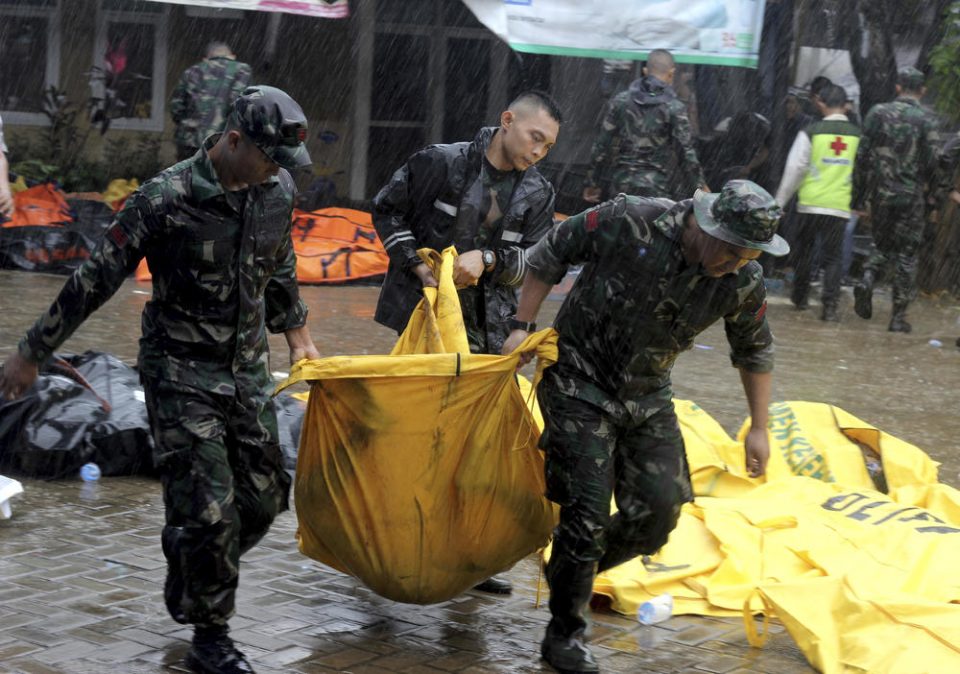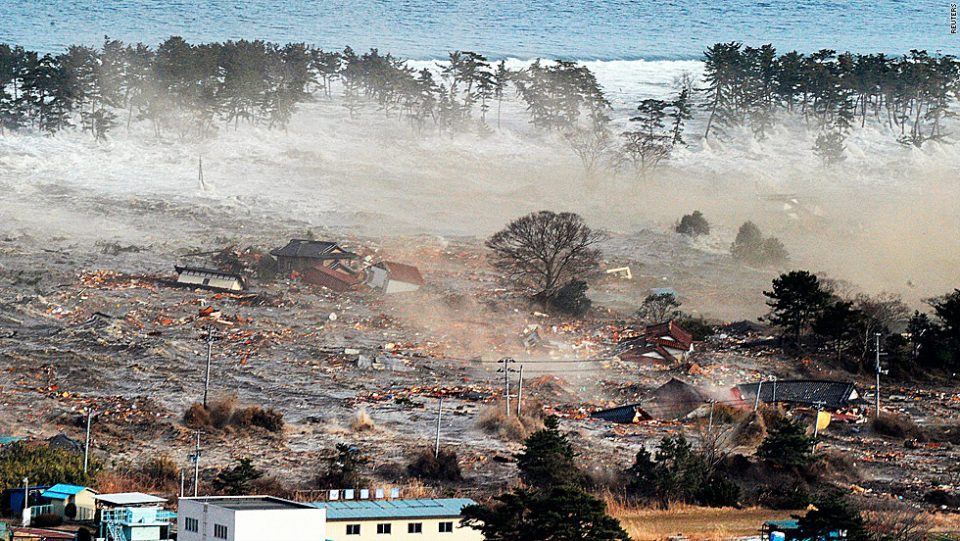Coastal residents near Indonesia’s Anak Krakatau volcano have been warned to keep away from beaches amid fears it could trigger a new tsunami, BBC reports.
On Saturday, giant waves crashed into coastal towns on the islands of Sumatra and Java, killing at least 281 people and injuring 1,016.
It is thought that volcanic activity set off undersea landslides which in turn generated the killer waves.
Anak Krakatau erupted again on Sunday, spewing ash and smoke.
Video shot from a charter plane captured the magnitude of the volcanic event in the Sunda Strait, between Sumatra and Java.
Rescue efforts are being hampered by blocked roads but heavy lifting equipment is being transported to badly hit areas to help search for victims.
The spokesman for the National Disaster Management Agency, Sutopo Purwo Nugroho, told a news conference that another tsunami is a possibility because of the continued volcanic eruptions of Anak Krakatau.
“Recommendations from [the] Meteorology, Climatology and Geophysical Agency are that people should not carry out activities on the beach and stay away from the coast for a while,” he said.
Anak Krakatau, which formed in 1927 after the Krakatoa volcano eruption, has seen increased activity in recent months with people asked to avoid the area around its crater.
On Monday Mr Sutopo put out a series of tweets explaining why there was no early warning for this tsunami. He said that Indonesia’s early warning system is set up to monitor earthquakes but not undersea landslides and volcanic eruptions, which can also generate deadly waves.
But, he added, that with 13% of the world’s volcanoes in Indonesia alone, it was crucial for the country to develop such system.
He confirmed there was no tsunami advance warning system the night of the disaster, adding that because of lack of funds, vandalism to the buoys and technical faults there had been no operational tsunami warning system since 2012.
The tsunami struck at 21:30 local time (14:30 GMT) during a local holiday, with few of the warning signals that might have come had it been generated by an earthquake.
Sea water did not recede as it would with an earthquake tsunami and experts say that even if there had been warning buoys near the volcano, there would have been minimal alert time.
The waves destroyed hundreds of buildings, sweeping away cars and uprooting trees in several popular tourist destinations including the Tanjung Lesung beach resort, west Java.
Footage shared on social media showed a large wave crashing into a tent in the resort, in which popular Indonesian rock band Seventeen was performing.
Members of the band were seen being swept away as the wave destroyed the stage.







Comments are closed for this post.